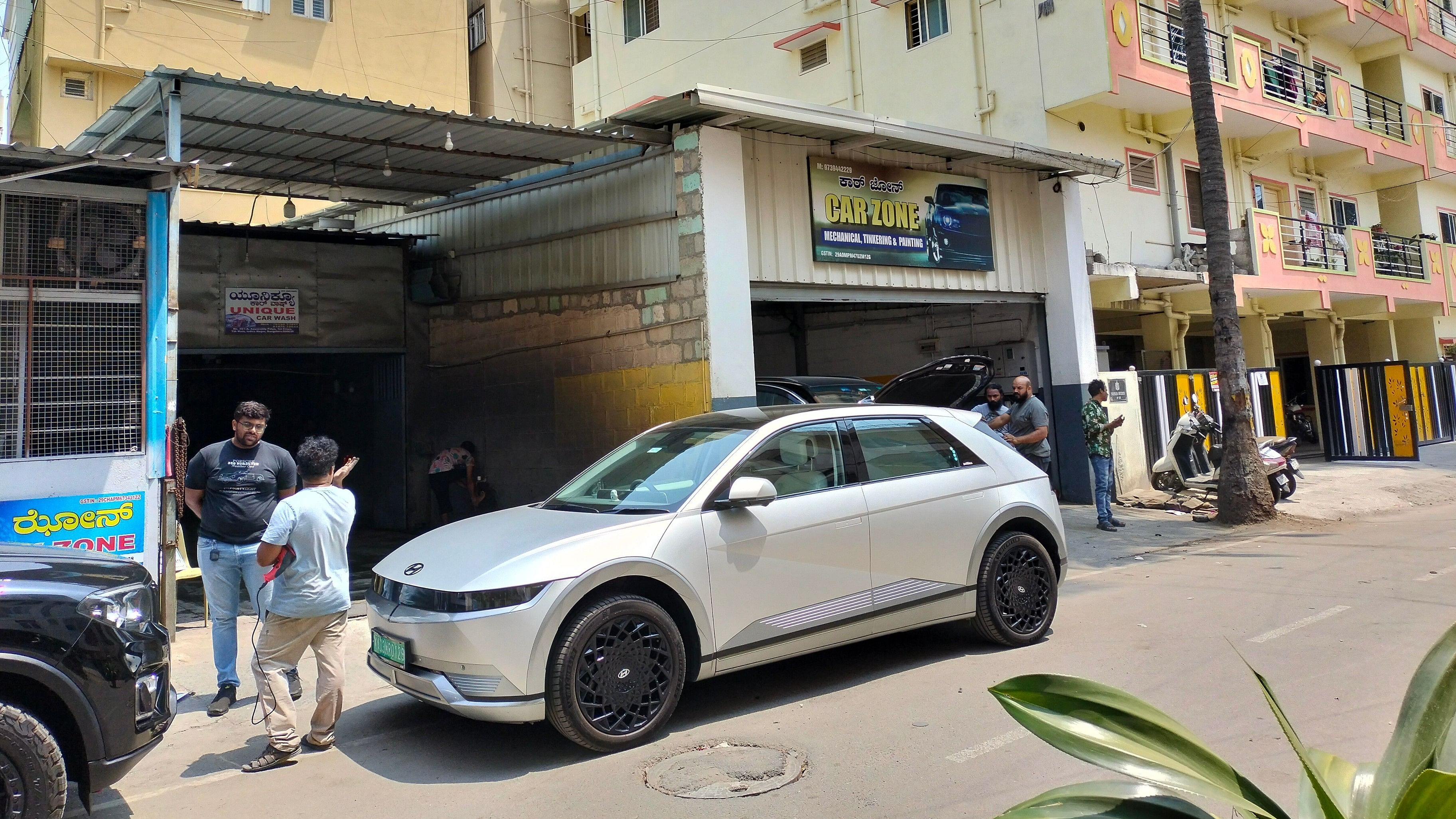
Car washes are caught in a difficult position, attempting to balance adherence to water conservation efforts with the economic viability of their businesses.
Credit: DH Photo/ Caroline Diana T
As Bengaluru battles a growing water crisis, the city's car wash centres find themselves at a controversial tug-of-war between sustainability and survival. Last week, the Bangalore Water Supply and Sewerage Board (BWSSB) laid down the law, banning the use of potable water for car washing, as well as for gardening and construction activities. This decree came with a stiff penalty of Rs 5,000 for those caught flouting the new rule.
Despite these restrictions, many car wash establishments across the city continue to draw water from private tankers and borewells, risking fines in a bid to keep their businesses afloat. These centres argue that the alternative—using treated water—is not viable due to its high salt content, which they claim damages vehicles' paint and overall quality.
This dilemma has resulted in a sharp decline in business, particularly during the February to April period, traditionally a slow season for car washes, which has now been exacerbated by the BWSSB's restrictions. The cost of washing vehicles has remained relatively stable, despite the heightened price of water tankers and the overarching scarcity of water, with two-wheelers being washed for between Rs 100 and Rs 250, and the price for four-wheelers varying according to the size and make of the vehicle.
Ashfaq, manager of the Unique Wheel car wash centre in Indiranagar, shares a slice of their daily struggle.
"We have been using borewell water for car wash," he reveals, hinting at the intricacies of keeping a business afloat while adhering to sustainable practices. He adds, "People come here because using borewell water or treated water at home without using the vehicle dryers might damage the paint of their vehicle." Despite their efforts to adapt, Ashfaq notes a stark decrease in business, "We have not been having many customers after BWSSB imposed a ban on using drinking water for car wash.”
Not far away, in Mahadevapura, another centre navigates the crisis with innovative solutions. The manager at Splash Car Wash Centre discloses their approach to conservation, "We have been using tanker water along with wastewater from a Bisleri plant nearby."
Yet, not all solutions are embraced with open arms. A waterless dry cleaning technique for vehicles, though lauded for its conservation potential, faces skepticism from hands-on experts.
Velu, a seasoned mechanic at Unique Car Wash Centre, voices his concerns, "The use of treated water or borewell water without blow drying causes the salt content to corrode the paint of the cars."
His cautionary note raises questions about the feasibility of certain water-saving measures and their impact on vehicle maintenance.
Sunrise Car Care near Central Jail Road, Kaikondrahalli, and Prestige Car Spa in Garuda Mall, reveal their reliance on tanker water and mall water supply, respectively, to meet their needs. These adaptations, while in defiance of the BWSSB's ban, highlight a complex challenge faced by businesses caught between regulatory directives and survival instincts.